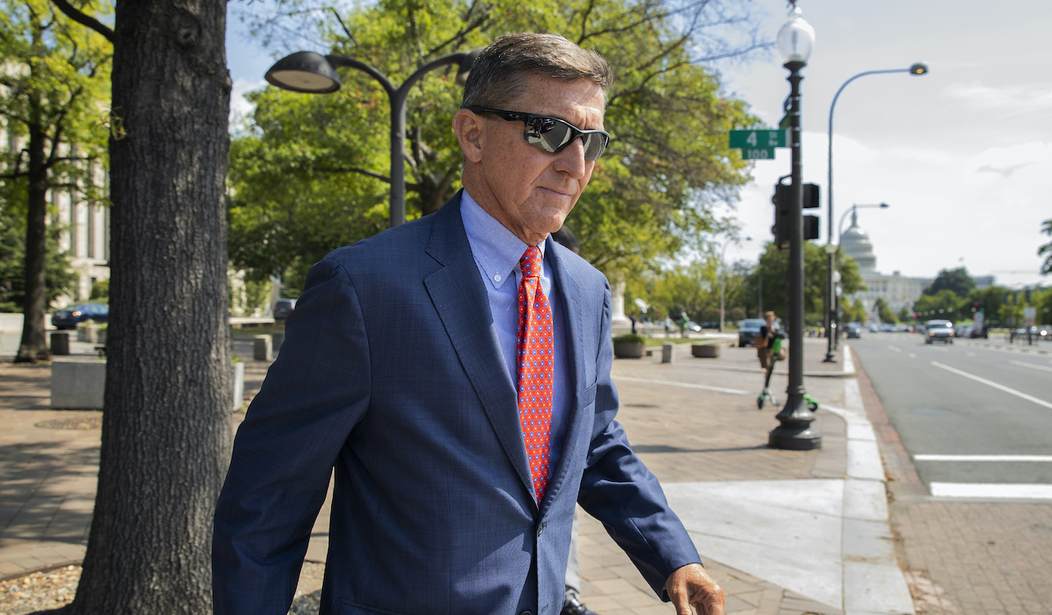
Yesterday the Circuit Court of Appeals for the District of Columbia issued an Order setting oral argument on the Petition for Mandamus filed by Gen. Michael Flynn, seeking to have the Circuit Court “mandate” to Judge Emmet Sullivan that he grant the Justice Department motion to dismiss the case. Noteworthy in the Order is that they have allotted a combined 30 minutes to Gen. Flynn’s counsel and the United States, while giving Judge Sullivan’s counsel only 15 minutes. Given that the two sides are nominally “opposed”, the Court has put its thumb on the scale by giving one side twice as much time to argue as the other. Part of this reflects that DOJ has a stated some reasons for wanting to dismiss the case that are unique to the Department, and do not depend on the reasons advanced by Gen. Flynn for the same. But not “evening up” the two sides of the argument is noteworthy. In my experience having argued more than 20 cases in Circuit Courts of Appeal — and watching dozens of others be argued waiting for my cases to be called — the time is normally evenly divided on both sides of the question, and then divided up again by counsel on each side when there are multiple parties. I found the decision by the Circuit Court here to not follow that pattern interesting.
I was surprised that the Appeals Court would even set the case for oral argument, and I think it suggests one of two things is likely true with regard to the panel.
First, they are simply trying to be “over-the-top” fair and transparent about allowing all the arguments on both sides to come before the Court on the issue, and they recognize the posture of this particular case — combined with its extraordinarily high profile — warrant giving all the “stake-holders” in the outcome a chance to fully voice their positions on the question before the Court. It’s unusual for a case such as this to arrive at the Circuit Court in this posture — with no final order from the lower court being subject to review, but rather a “refusal” by the lower court to act expeditiously. It would be difficult to justify reaching an answer on the question they have taken up without giving Judge Sullivan a chance to offer an explanation.
Second, it’s possible they are not pleased with the written submission by Judge Sullivan, which did not address the subject raised by their Order directing him to respond to the Petition. They wanted to hear from him on why the inquiry he is proposing to conduct is not foreclosed by the language of the Circuit Court in the Fokker Services decision from just four years ago. Rather than answer that question, Judge Sullivan’s written response spends nearly all its energy covering the history of the case, Judge Sullivan’s views on the actions and statements of Gen. Flynn in earlier proceedings, and inconsistencies in the positions taken by the Justice Department on some of the issues that are the basis for the motion to dismiss — all of which he claims are reasons to ignore the “presumption of regularity” given to DOJ court filings, and require him to answer “plausible judicial questions” about the same. None of that addresses the issue raised by the Court’s Order — how is the nature of the inquiry he proposes to conduct allowable under the language of Fokker Services?
I expect both sides of the dispute were surprised that the Circuit Court has scheduled oral argument. Is there really anything that advocates for either can say that will determine the outcome? I don’t see it. So is there an alternative motivation for wanting both sides to answer questions from the panel.
In my experience, this situation is more about the questions than the answers. The Panel members want to be heard. They aren’t going to resolve this with a long and complicated order. I predict that the actual decision in the matter — the order put out by the Circuit Court when it decides — will be somewhat brief. I think we are likely to learn a lot more about the thinking of the Panel based on what we hear from them when they ask questions.
The question that has always been foremost in my mind about Judge Sullivan’s intended course of action is “How does this inquiry take you anywhere other than to a determination that you “agree” or “disagree” with the stated justification of the Justice Department for dismissing the case?”
The problem for Judge Sullivan in that question is that under the case law he has to dismiss the case in either circumstance. If he agrees with the DOJ justification after conducting his inquiry, then dismissal is a obvious.
But all the recent case law on the subject of judicial inquiry into charging decisions holds that merely disagreeing with DOJ’s justification is not a basis to refuse to dismiss because the issue is not subject to judicial oversight or second-guessing.
So, if there is a “third way” that might take Sullivan to an ending that is something other than “agreement” or “disagreement” with DOJ, what is that? Explain what is the nature of the outcome of his inquiry that would — in his view — justify denying the motion? If he can’t explain that — and he doesn’t attempt to do so in his written response — then he can’t justify going forward with his plan as he has laid it out.
If his plan is ultimately a “road to nowhere”, there’s no reason to go on the journey given separation of powers considerations.
But, assuming that Sullivan can articulate some “third way” outcome other than a conclusion that he “agrees” or “disagrees” with DOJ’s rationale — what then? What is Sullivan’s view on the options before him for next steps? Would he deny Flynn’s motion to withdraw his guilty plea and proceed to sentencing Flynn based on a crime DOJ says before the District Court and the Circuit Court did not happen? Where is the “interests of justice” in that?
What does Sullivan expect would happen to his decision-making on direct review to the Circuit Court on that record?
If he denies the motion to dismiss, but then grants Flynn’s motion to withdraw his guilty plea, and the case is back as a pending matter on the docket before the District Court, the only pending charge is set forth in an Information. The case cannot proceed to trial on an Information. If DOJ refuses to take the case to the Grand Jury and seek an indictment, what would Judge Sullivan do? Would he appoint “Special Counsel” to pursue the case before the grand jury if DOJ refuses? Does the current case law allow him that option? How would that be anything other than a complete loss of judicial impartiality on the matter, resulting in his removal from the case? Would Sullivan suggest he could be a one-man substitute for the Department of Justice and the Executive Branch’s obligation to see that the laws are “faithfully executed” when that is not part of the authority of the Judiciary under Article III? Is he proposing to usurp that power unto himself because he disagrees with DOJ decision-making?
To me, I see this maybe as an effort by the Circuit Court to reveal this entire episode as an exercise in vanity by a District Court Judge who has never shied away from the attention of the spotlight. He’s turned his courtroom, the District Court, and now the Circuit Court into a circus.
And the Circuit Court is determined to put the circus animals back on the train and send them out of town.














Join the conversation as a VIP Member